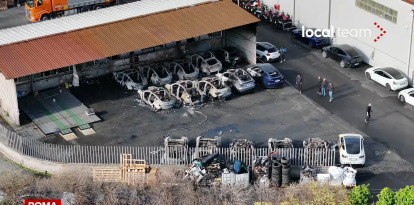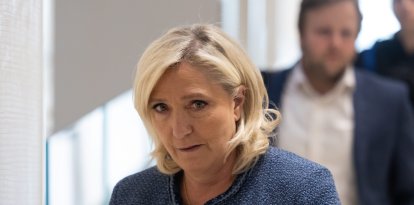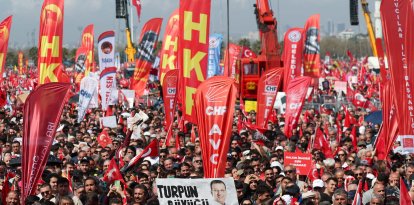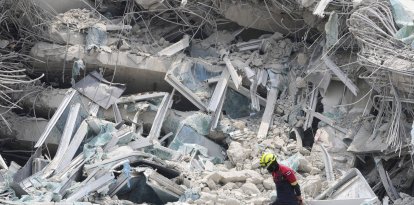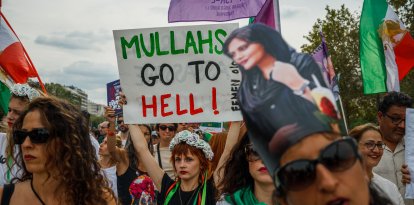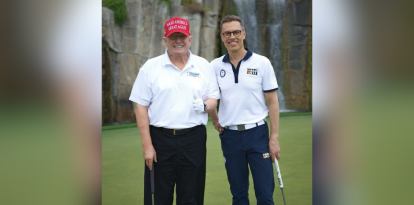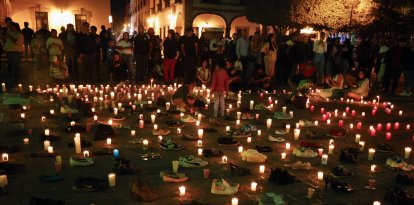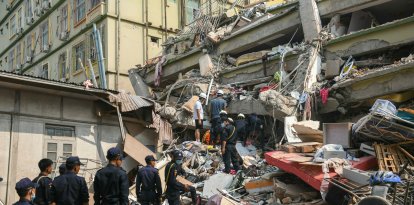Yoseph Haddad: "This is Israel's second War of Independence"
Voz Media spoke with the renowned Israeli Arab activist about the Jewish state's war against the Hamas terrorists.
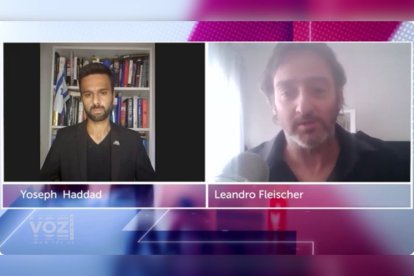
Voz Media dialogó con el activista árabe israelí y director de la asociación Beiahad Arevim Ze LeZe (Juntos unos con otros) sobre la guerra del Estado judío contra los terroristas de Hamás.
Yoseph Haddad, a Christian Arab who resides in the city of Nazareth, has become the most important Israeli citizen when it comes to the communication of the Jewish state in the world, and he has achieved it independently.
After turning 18, he voluntarily enlisted in the Israel Defense Forces and was seriously wounded in the Second Lebanon War in 2006.
In 2018, he decided to leave an important position in a financial company to dedicate himself to publicly denying those who call Israel an apartheid state – among other accusations – and telling the truth about what is happening in the country. In addition, Haddad founded ‘B’Yachad Arevim Zeh L’Zeh (Together Vouch for Each Other),’ an association composed of Jews, Druze, and Christian and Muslim Arabs, whose goal is to bring the Arab community closer to Israeli society.
Following Hamas’ massacre in southern Israel and the war that broke out after the attack, Haddad spoke with Voz Media about the mistakes made by the army and intelligence of the Jewish state, the best way to combat Hamas and how the different sectors of the diverse Israeli society are experiencing this difficult moment.
Regarding the serious security failures that occurred on Saturday, October 7, Haddad says that there will surely be officials who will have to leave their positions, but he points out that it is something that will have to be discussed later. “Now we have to be united,” he says due to the seriousness of the situation. So much so that even though the war is officially called ‘Operation Iron Swords,’ Haddad prefers to call it the ‘Second War of Independence’ since, he says, it is a fight “for our existence.”
The Israeli Arab activist also points out that Hamas was wrong to believe that division in Israel over judicial reform would weaken the Jewish state. In this regard, he emphasizes: “We are more united than ever.” And he adds that many more reservist soldiers have arrived to fight than expected. “They are here, they traveled to the south, they put on the uniform and said they are going to fight for the country,” he says.
Regarding the relationship between Arabs and Jews at this moment, Haddad comments that countless wonderful stories demonstrate the good relationship between both sectors, such as that of Yusef al-Ziadana, who saved more than 30 Jews while risking his own life. The social activist also says that some Arab people who hated and threatened him contacted him after the Hamas massacre to tell him that they realized he was right and did not want to live under the Hamas terrorist regime.
However, Haddad warns that in the Arab sector there are “extremists who are calm for now.” And he adds that he hopes they stay that way; otherwise, “they will be treated harshly.”
Haddad does not hesitate to affirm that Israel “must exterminate Hamas,” and to do so, it must continue bombing the terrorist group’s positions, but a ground incursion is also necessary. After the large-scale operation in the Gaza Strip, the activist states that the Jewish state must impose “transitional military control,” supply the Gazans with all the necessary services, and gradually withdraw from the area once leadership assumes that does not take the path of terrorism and “recognizes Israel as a Jewish and democratic state.”
“We will win,” he concludes.
RECOMMENDATION
